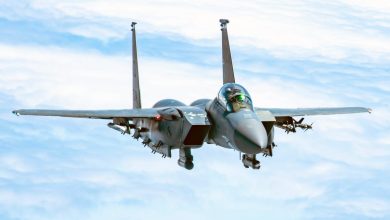Junior enlisted troops will see a 14.5% pay raise in 2025 under a deal negotiated by House and Senate leaders in this year’s defense authorization bill, a move that adds between $3,000 and $6,000 to younger service members’ basic pay next year.
The plan also includes a 4.5% pay raise for other troops, more than $2 billion in funding for new barracks and family housing, expanded bonuses and hiring incentives to boost the number of medical personnel in military health care facilities, and hikes child care workers’ salaries to improve availability at military bases.
The quality of life moves — most of which were introduced by House lawmakers earlier this year — are designed to counter recruiting and retention problems in the ranks.
The larger authorization bill still must be approved by the whole of Congress before the pay raise and other provisions can become law. And lawmakers will have to agree upon a new package to fund the larger paychecks before the end of the year.
RELATED
But chamber leaders expressed optimism that the work can be finished in the next few weeks. The authorization bill is considered must-pass legislation each year because it contains a host of routine stipends and spending authorities, and lawmakers are expected to spend the final few days of session this month finalizing the measure.
The junior enlisted pay raise proposal is slightly less generous than what House lawmakers approved earlier this summer, but would still represent a significant financial boost for tens of thousands of young troops whose annual base pay can be less than $30,000 a year.
With the 14.5% boost, all but the most junior enlisted service members would earn approximately that $30,000 annual mark, before factoring in housing stipends and other pay incentives.
Troops ranked E-2 with two years service would see their base salary rise from about $27,000 now to $31,000 in 2025. Troops ranked E-4 with three years in the ranks would see their pay rise from $35,000 a year to more than $40,000 next year.
Enlisted troops ranked E-5 and above would not be eligible for the junior enlisted pay boosts, but would receive the 4.5% pay boost, ensuring that their salaries don’t drop below their subordinates.
The 4.5% raise represents the third consecutive year of across-the-board paycheck boosts of more than 4%. For an E-7 with 10 years military experience, or an O-2 with two years experience, the 4.5% raise means about $200 more each month and roughly $2,600 a year in extra salary.
For an O-4 with 12 years in service, the 4.5% raise would mean about $400 more each month and nearly $5,000 more per year.
The authorization bill also calls for Congress to fund $954 million in new housing maintenance accounts, $569 million for new construction of new family housing units and $1.2 billion for construction of new barracks. It requires the Defense Department to designate officials responsible for oversight of unaccompanied housing and increase the frequency of inspections.
The moves follow years of criticism from military advocates about substandard housing and insufficient response to family complaints.
Reforms to medical care and child care systems follow similar criticism. Lawmakers also included language to make it easier for military spouses to transfer professional licenses between states and mandate improved reading and literacy rates for Defense Department schools, also aimed at improving quality of life for military families.
House lawmakers are expected to vote on the authorization bill next week. Both the House and Senate are scheduled to wrap up their work for the year by Dec. 20, although that could be extended if a budget deal for the entire federal government is not reached before then.
Leo covers Congress, Veterans Affairs and the White House for Military Times. He has covered Washington, D.C. since 2004, focusing on military personnel and veterans policies. His work has earned numerous honors, including a 2009 Polk award, a 2010 National Headliner Award, the IAVA Leadership in Journalism award and the VFW News Media award.
Read the full article here





